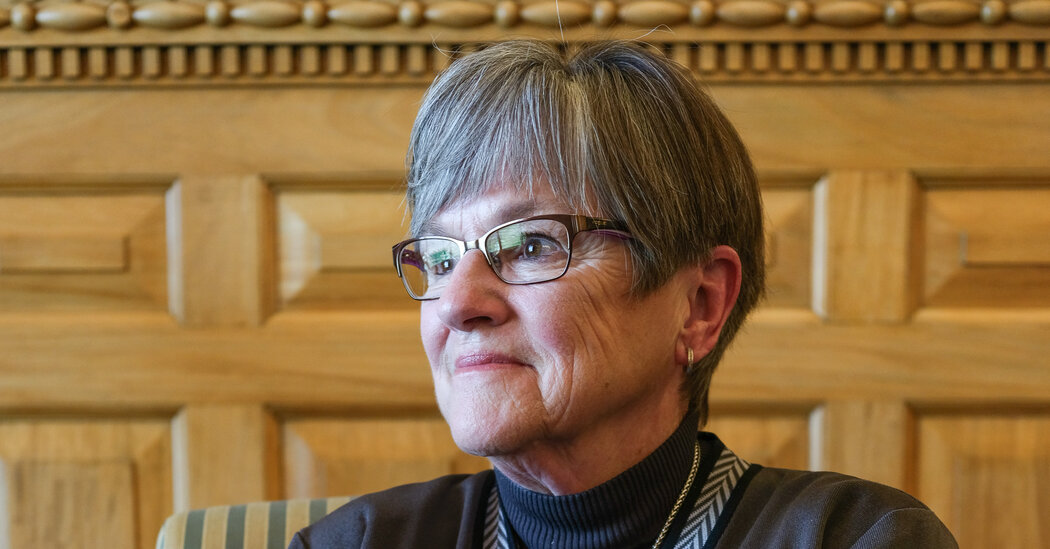As Southern states reconsider Medicaid expansion, Gov. Laura Kelly of Kansas is pushing her own plan meant to appeal to conservatives. So far, success has been elusive.
As lawmakers in a nearby hearing room debated last month whether to support her legislation to expand Medicaid, Gov. Laura Kelly of Kansas dared the state’s Republican House speaker to hold a vote.
“If he thinks he can kill it, bring it,” Ms. Kelly, a soft-spoken moderate Democrat, said in an interview in her sprawling office suite at the State Capitol in Topeka.
The next morning, in his own office off the House floor, Speaker Dan Hawkins showed no sign of yielding. He described Medicaid expansion as “almost like the greatest Ponzi scheme ever devised.” The same day, a House committee voted against sending Ms. Kelly’s bill to the floor, derailing the proposal — at least for now.
The standoff between Ms. Kelly and Mr. Hawkins represented one fight in a fierce political battle playing out in several state capitals over the future of Medicaid, the health insurance program for the poor. In Kansas and in a handful of Republican-controlled states in the South, supporters of expanding the program under the Affordable Care Act have renewed their efforts to overcome longstanding Republican opposition, generating a sense of headway.
Yet neither Ms. Kelly nor backers of Medicaid expansion elsewhere have managed to advance legislation far enough to become law, a reflection of the continuing political power of conservative ideas about the nature of government-subsidized coverage and the people deserving of it.
“It’s really the fundamental moral question of where the safety net should be,” said Ty Masterson, the Republican president of the Kansas Senate and a longtime opponent of expansion. “And the safety net should be on the frail and elderly and on the disabled and all the low-income mothers and children.”
